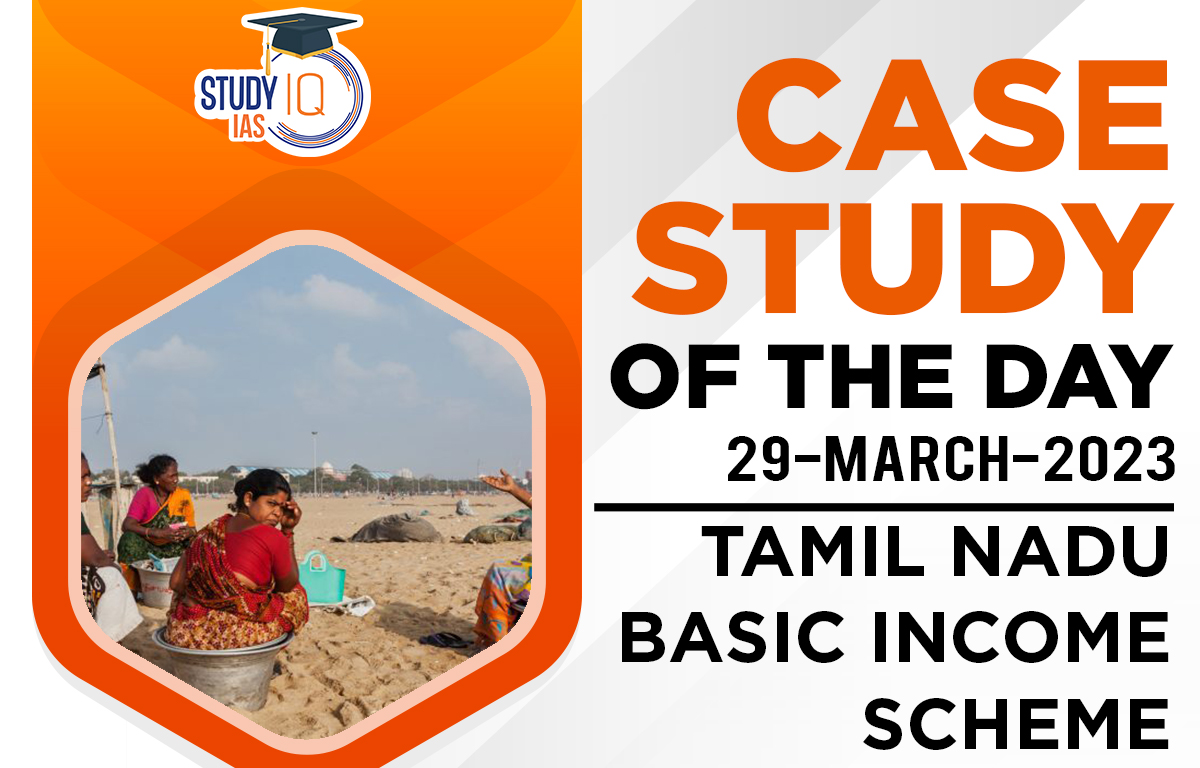Table of Contents
Context: The Tamil Nadu Government recently announced a scheme for universal basic income named ‘Magalir Urimai Thogai’.
About Basic Income Scheme in Tamil Nadu
- The State government’s scheme entails the payment of assistance of Rs 1,000 per month, where nearly 1 crore women in Tamil Nadu are expected to be covered.
- It is for the first time that a big state like Tamil Nadu, with a relatively large per capita income, has decided to expand the scope of basic income criteria.
- Objectives of the Scheme
- To recognize the life-long relentless selfless work of women.
- To eradicate poverty by complementing women’s livelihood, with an annual aid.
- To ensure self-respect and improve the standard of living in the society for women.
- Features of scheme:
- Road-side women vendors, fisherwomen, those into construction work, workers in minor commercial establishments, domestic helps employed in multiple households are among the sections of women, who would benefit from the scheme.
- Monthly aid of Rs 1,000 would be deposited directly in their bank accounts.
- Excluded Category: Income tax payers, employees of governments – Central or State public sector enterprises, GST Payers.
- Projected Benefits of Basic Income Scheme:
- Poverty Reduction.
- Women would use the money for their children’s education, give priority to nutritional needs and medicine.
- It would result in improvement in social indicators of the state, such as gross enrolment ratios, birth and death rates and life expectancy.
- Exploitation of Labour would reduce, since women will no longer be forced to accept any working conditions.
- Freedom of choice would result in Social Empowerment.
- Challenges associated in implementing such Basic Income Scheme:
- Higher Government Expenditure, resulting in fiscal spending pressures.
- Households may spend the freely obtained money on unnecessary/ wasteful goods.
- The Labour Force might get reduced, as minimum guaranteed income might make people lazy.
- Risks associated with Inflation increases due to increase in liquidity.
Conclusion
- Thus, given the risks associated with implementing Basic Income Scheme, focus should be on providing basic necessities such as food security, healthcare, sanitation, and education, to improve the quality of life while reducing social vulnerabilities.


 Daily Quiz 16 July 2025
Daily Quiz 16 July 2025
 US Approach to the Trade Deal with India...
US Approach to the Trade Deal with India...





















